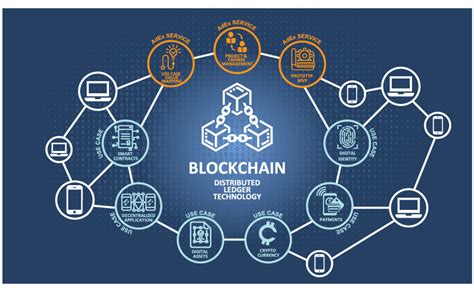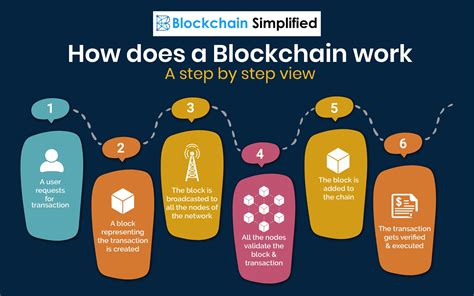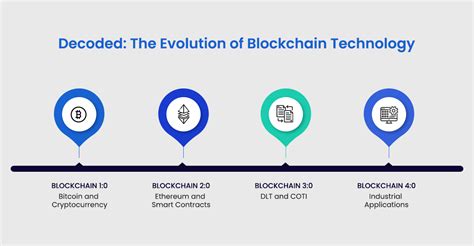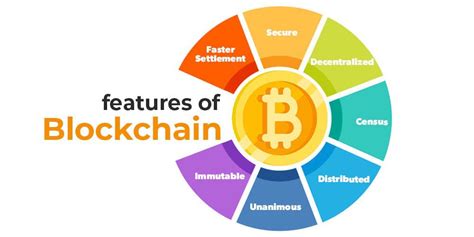Breaking News


Popular News


Explore the history, key features, and future potential of blockchain technology in supply chain, healthcare, and voting systems. What is blBlockchain technology has become synonymous with cryptocurrency, but its applications extend far beyond the realm of digital currency. In this blog post, we will explore the potential of blockchain technology and its impact on various industries. From its basic principles and key features to its use in supply chain management, healthcare, and voting systems, we will delve into the diverse applications of blockchain technology. By understanding the history and key features of blockchain, we can appreciate its potential to revolutionize the way information is stored and accessed. Join us as we unravel the future potential of blockchain technology and its ability to transform industries beyond just cryptocurrency. Whether you are a technology enthusiast, a business professional, or simply curious about the impact of blockchain, this post aims to provide a comprehensive overview of the topic.
Contents

Blockchain technology is a decentralized, distributed ledger system that records the provenance of a digital asset. It allows multiple parties to transact directly with each other without the need for a trusted intermediary. The concept of blockchain was first introduced by an anonymous person or group of people known as Satoshi Nakamoto in 2008 when they released a whitepaper titled Bitcoin: A Peer-to-Peer Electronic Cash System.
The key features of blockchain include immutability, transparency, security, and decentralization. Each block in a blockchain contains a cryptographic hash of the previous block, timestamped batches of recent valid transactions, and a proof of work or proof of stake algorithm. This ensures that the data stored on a blockchain cannot be altered or deleted.
In recent years, blockchain technology has found applications beyond the realm of cryptocurrency. It is being used in supply chain management to track the movement of goods, in healthcare to secure medical records, and even in voting systems to prevent fraud and manipulation.
In summary, blockchain technology is a revolutionary concept that has the potential to disrupt numerous industries and change the way we transact and interact with each other.

Blockchain technology has come a long way since its inception. The history of blockchain can be traced back to 2008, when the concept was introduced by an unknown person or group of people using the pseudonym Satoshi Nakamoto. The first successful implementation of blockchain technology came with the launch of Bitcoin in 2009, which used blockchain as its underlying technology to create a decentralized digital currency. This marked the beginning of a new era in digital transactions.
Following the success of Bitcoin, the potential of blockchain technology was quickly recognized by other industries. In 2015, Ethereum was introduced as a platform for decentralized applications, further expanding the possibilities of blockchain beyond just digital currencies. The history of blockchain is filled with innovations and advancements that have paved the way for its widespread adoption in various sectors.
The concept of blockchain has evolved significantly over the years, with improvements in scalability, security, and interoperability. The history of blockchain is a testament to the continuous efforts to make this technology more efficient and accessible to different industries. As new use cases for blockchain continue to emerge, its history is being shaped by the ongoing developments and collaborations within the tech community.
Looking back at the history of blockchain, it is clear that this technology has come a long way from its humble beginnings. From its origins in Bitcoin to its current applications in various sectors, the history of blockchain reflects the innovative spirit of the tech industry and its continuous drive to redefine digital transactions and data management.

Decentralization: One of the key features of blockchain technology is its decentralized nature. Unlike traditional centralized systems, blockchain operates on a network of nodes that work together to validate and record transactions. This decentralization helps to enhance security and transparency, as there is no single point of failure.
Immutability: Another important feature of blockchain is its immutability. Once a transaction is recorded and confirmed on the blockchain, it cannot be altered or deleted. This ensures the integrity of the data and prevents fraudulent activities.
Transparency: Blockchain technology provides a high level of transparency, as all transactions are recorded on a public ledger that is accessible to anyone on the network. This allows for greater accountability and trust in the system.
Security: The use of cryptographic techniques and consensus mechanisms such as proof of work or proof of stake make blockchain technology highly secure. This helps to protect against unauthorized access, fraud, and data manipulation.

Blockchain technology has been revolutionizing various industries, and one of the areas where it has significant potential is in supply chain management. With the ability to create transparent, secure, and immutable records, blockchain can help improve efficiency, reduce costs, and increase trust in the supply chain.
One key feature of blockchain is its ability to create a decentralized ledger, which means that all participants in the supply chain have access to the same information, reducing the risk of fraud and errors. This can help companies track the movement of goods, verify the authenticity of products, and ensure compliance with regulations.
In addition, blockchain can also be used to streamline the payment process in supply chain management, reducing the need for intermediaries and speeding up transaction times. This can result in cost savings and improve cash flow for businesses.
Furthermore, the use of smart contracts in blockchain technology can automate and enforce agreements between parties in the supply chain, creating a more efficient and secure process for managing transactions and relationships.

Blockchain technology, known primarily for its association with cryptocurrency, is proving to be a game-changer in the healthcare industry. Its decentralized and secure nature makes it an ideal solution for the numerous challenges faced by healthcare systems worldwide.
The key features of blockchain technology, such as immutability, transparency, and security, are particularly beneficial in the healthcare sector. With the use of blockchain, patient data can be securely stored and shared across different healthcare providers, ensuring accurate and up-to-date information for better treatment outcomes.
In addition, the implementation of blockchain in healthcare can streamline processes such as medical record keeping, insurance claims, and supply chain management. This can lead to reduced administrative costs and improved operational efficiency within healthcare organizations.
Furthermore, blockchain technology has the potential to revolutionize clinical research and drug development by enabling secure and transparent sharing of data among researchers and pharmaceutical companies. This can lead to faster and more effective development of new treatments and medications.

Blockchain in Voting Systems
Blockchain in Voting Systems
Voting is an essential part of any democratic society, and ensuring the integrity and security of the voting process is crucial. Blockchain technology has the potential to revolutionize the way we conduct elections by providing a secure and transparent platform for voting. One of the key features of blockchain is its ability to provide a tamper-proof and immutable ledger of transactions, making it an ideal solution for ensuring the integrity of voting systems.
Implementing blockchain in voting systems can help address many of the challenges and issues that traditional voting systems face. By utilizing a decentralized network of nodes, blockchain technology can prevent unauthorized access and tampering of voting data, ensuring that every vote is recorded and counted accurately.
| Benefits of Blockchain in Voting Systems | Challenges of Implementing Blockchain in Voting Systems |
|---|---|
|
|
Despite the numerous benefits that blockchain can bring to voting systems, there are also several challenges that need to be addressed. Integrating blockchain with existing voting infrastructure can be complex, and ensuring accessibility for all voters, including those without internet access, is a significant concern. Additionally, there are legitimate concerns about privacy and anonymity that need to be carefully considered when implementing blockchain in voting systems.
As technology continues to advance, the potential for blockchain in voting systems is vast. With further research and development, blockchain has the potential to revolutionize the way we conduct elections, providing a secure, transparent, and tamper-proof platform for voters to cast their ballots.

Blockchain technology has already made a significant impact in various industries, but its potential for the future is even more promising. As the technology continues to evolve and improve, it is expected to revolutionize many aspects of our lives. One of the key areas where blockchain is expected to have a major impact in the future is in the field of data security. With its decentralized and immutable nature, blockchain has the potential to provide a more secure and transparent way of storing and managing data.
Another area where blockchain is expected to make a significant difference is in the financial sector. The technology has the potential to streamline and automate many financial processes, reducing the need for intermediaries and making transactions faster and more cost-effective. This could lead to greater financial inclusion and access to banking services for people around the world, particularly in underbanked and unbanked regions.
Blockchain also has the potential to transform the healthcare industry by improving the security and integrity of patient data, providing a more efficient way of sharing medical records, and enabling new models of healthcare delivery. Additionally, the technology has the potential to enhance transparency and traceability in supply chain management, making it easier to track and verify the authenticity of products and reduce the risk of fraud.
Overall, the future potential of blockchain is vast and diverse, with applications beyond cryptocurrency. As the technology continues to mature and gain widespread adoption, it is likely to revolutionize many industries and change the way we interact with the world around us.

What is blockchain technology?
Blockchain technology is a decentralized and distributed digital ledger that records transactions across many computers so that the record cannot be altered retroactively without the alteration of all subsequent blocks and the consensus of the network.
What are the key features of blockchain technology?
Key features of blockchain technology include decentralization, transparency, security, immutability, and efficiency.
How is blockchain technology used beyond cryptocurrency?
Blockchain technology is being used in various industries such as supply chain management, healthcare, voting systems, real estate, and identity verification.
What are the benefits of using blockchain technology?
The benefits of using blockchain technology include increased transparency, reduced costs, improved security, increased efficiency, and decreased fraud.
What are some challenges of blockchain technology?
Challenges of blockchain technology include scalability, interoperability, regulatory issues, and environmental impact due to energy consumption.
What is a smart contract and how does it relate to blockchain technology?
A smart contract is a self-executing contract with the terms of the agreement between buyer and seller being directly written into lines of code. These contracts are executed and enforced by the blockchain, providing automation, security, and efficiency.
What is the future of blockchain technology?
The future of blockchain technology holds potential for further disruption across industries, increased adoption of cryptocurrencies, and continued research and development to address current limitations.